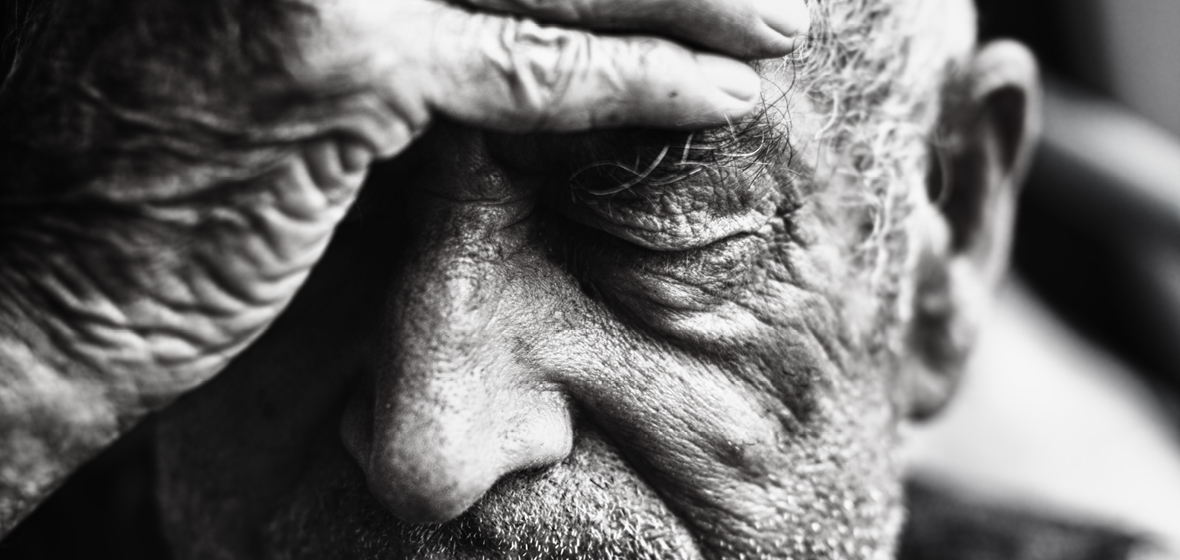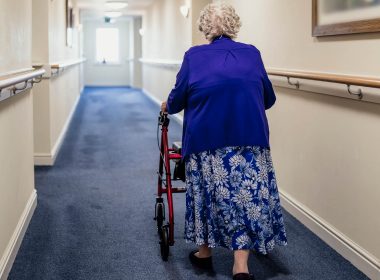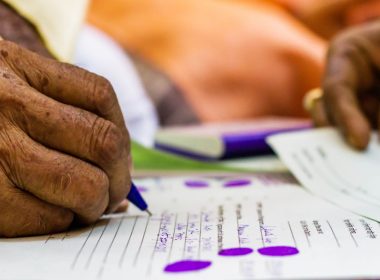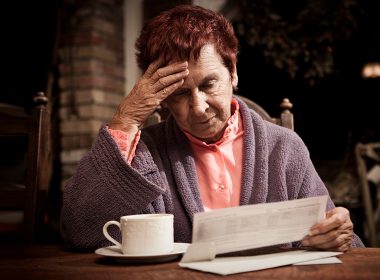If you steal money from a stranger, it’s considered theft, but if you pressure your elderly mum into signing her life savings over to you, our criminal laws are ineffective.
Older Australians remain at the highest risk of developing and dying from COVID-19. Sweeping government restrictions were introduced to protect the lives of our most vulnerable, but will the isolation of lockdown allow elder abuse to go unchecked?
Three years ago, Australia was warned it is rapidly approaching an “inescapable demographic destiny”. Our rising life expectancy is colliding with soaring rates of dementia and other diseases of cognitive decline. According to the Australian Law Reform Commission’s (ALRC) detailed report on elder abuse published in 2017, more than one million Australians are forecast to have dementia by 2056.
Escalating deterioration frequently leaves two choices – shift care and legal responsibility for affairs onto relatives or move permanently into aged care. Yet in recent years, climbing rates of elder abuse and exposés into the appalling and degrading treatment experienced by many in aged care have revealed both of those options often perpetuate vulnerability to harm.
The Royal Commission into Aged Care Quality and Safety said in its 2019 interim report: “As a nation Australia has drifted into an ageist mindset that undervalues older people and limits their possibilities.”
Then along came COVID-19. Just as the lockdown spiked fears of rises in domestic violence and child abuse, legal experts are concerned elder abuse may too increase – and that changes designed to keep justice moving during the pandemic, including e-witnessing, could exacerbate the risk further.
The Australian Institute of Family Studies estimates as many as 14 per cent of older Australians, aged 65 years and older, experience some form of abuse every day. In a similar vein to family violence, elder abuse is likely to be underreported.
The ALRC inquiry into elder abuse handed down 43 recommendations to improve federal laws, protect older Australians from abuse and ensure their autonomy. It urged the introduction of safeguarding laws that respond to a broader range of vulnerable adults but did not recommend any additional criminal offences relating specifically to elder abuse.
 Andrew Simpson
Andrew Simpson
Criminalising the coercion
Andrew Simpson, Principal Lawyer at Maurice Blackburn, believes there should be new criminal laws for elder abuse.
“As lawyers, what we find is by the time we get to an incident of financial elder abuse or elder abuse in general, it’s too late and we are left to try to pick up the pieces,” Simpson tells LSJ.
“Part of the reason for that is that elder abuse happens usually within the family, particularly financial and psychological abuse and so it is largely hidden.
“I’ve unfortunately seen many cases where the perpetrator will threaten to put the older person in a home to keep them quiet about the abuse.”
Simpson recalls an elderly female client who transferred her home, share portfolio and control of a family company, worth millions, to a child who had psychologically abused her.
“This was taken from her at a time when she was clearly suffering from dementia and vulnerable,” he says.
“What we often see is adult sons typically abusing their mothers, that is the most standard or typical example. What we are then left with is some kind of civil claim for breach of power of attorney or a recovery action for an asset, and often that asset has already been dissipated or lost and so there’s nothing really to chase.
“Very rarely do we see any of these adult children actually brought before a criminal court or a criminal prosecution because it is largely regarded as a civil matter, or a family matter to be sorted out between themselves.
More than one million Australians are forecast to have dementia by 2056
“If you steal money from a stranger, it’s considered theft, but if you pressure your elderly mum into signing her life savings over to you, our criminal laws are ineffective. There seems to be very little deterrence for a child to not commit an act of elder abuse. In our view a criminal offence could act as a deterrent to this kind of matter. A specific crime of elder abuse will give victims and anyone with concerns about possible abuse the support and confidence to report it to police.”
Simpson says the pandemic can be “very problematic” for older people, who could be living in isolation and may not have exposure to other support networks, like their GP or Meals on Wheels, who could potentially detect warning signs of abuse.
“If someone thought they could spend three years in jail for committing this sort of offence against their parent, it could act as a deterrence,” he says.
The ALRC report acknowledged the role of banks and financial institutions in protecting vulnerable clients. Simpson recounts a call he received from a bank concerned at a transfer his client, who was of sound mind, was about to make.
“They said, ‘She’s about to do this, do you want to talk to her?’ And I thought, ‘That’s proactive banking’,” he says.
“I have also had a nurse, an accountant, and a social worker do the same thing. These are three different people in three different industries who have thought something does not smell right about that transaction. And all of those cases uncovered serious amounts of financial and psychological abuse.”
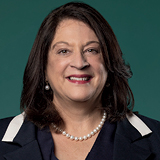 Angela Wood
Angela Wood
Not being able to visit a loved one would be causing people high anxiety, particularly at this time. I understand their distress, but I think for the providers, their focus was on the outbreak … it is a real dilemma to try to manage the risks.
A hidden deception
Darryl Browne, member of the Law Society of NSW’s Elder Law Committee and an accredited specialist in wills and estates, believes elder abuse can be easier to hide as it is often financial in nature, and fears it could be prolific in a pandemic.
“In the current situation, it is very simple for a person to offer to assist someone with financial transactions or internet banking, and that’s how that sort of elder abuse can begin,” he tells LSJ.
Like other forms of familial abuse and violence, it can be hard to detect.
“And there are a lot of reasons for that,” Browne says.
“If someone has bruises or broken bones, or people overhear screaming, it is a lot easier to discover. Yet deceit and abuse that is related to money isn’t that easy to spot. Similar to where we once were with domestic violence and child abuse, it has taken a while to get to this point of community awareness.”
Browne says the legal profession is often on the frontline of responding to elder abuse and should be aware of the warning signs.
“With an ageing population, it is going to be a really growing problem,” he says.
“It will be important to be conscious of warning signs and probe into the client’s thinking.
“If someone who has been pretty consistent with the contents of their will suddenly decides to make a rather dramatic change, it’s important for us as lawyers to ask questions, in a respectful way, to determine that this is the person’s own choice. It is important to test the decision-making.”
“It is up to us as a profession to be responsible and diligent. I think we are very much part of the frontline response.”
14% of older Australians, aged 65 years and older, experience some form of abuse every day.
The COVID-19 cluster
Of the 102 deaths from COVID-19 in Australia so far, close to 30 occurred in nursing homes. One outbreak, at Sydney’s Newmarch House, was the nation’s second-largest cluster of virus deaths after the Ruby Princess cruise.
Angela Wood, a partner at Maddocks, specialises in the health, retirement villages and aged care sectors of the health industry and has advised many public, private and not-for-profit providers in Australia.
“The Royal Commission acknowledged in its interim report that older Australians are too often undervalued, and we need to think hard about our seniors, really understand who they are, and the value they contribute to the community. Right now, we are starting from the position where we need to do so much more,” she says.
Wood believes providers have done “a wonderful job” throughout the pandemic.
“Few places have been as vulnerable as residential aged care homes,” she tells LSJ.
“In NSW, and nationally, seniors and people aged over 70 were recommended not to have visitors. In an aged care home, if you had 150 residents and they have two visitors each, that is 300 people who are potentially infectious.
“Not being able to visit a loved one would be causing people high anxiety, particularly at this time. I understand their distress, but I think for the providers, their focus was on the outbreak … it is a real dilemma to try to manage the risks.”
She says there are “a lot of moving parts” in an outbreak “especially when it comes to disseminating information.”
“Residents have to be prioritised in a situation where staff are trying to manage an outbreak, stop the spread and save as many lives as possible.
“I think the providers have responded well in these circumstances, acknowledging that there has been an unfortunate loss of life in some cases which has been distressing for families and staff. “We cannot forget how important the staff have been. Many of them are not highly paid and have a personal connection with the residents at risk. Many staff in aged care homes are casual, they have families themselves who they may have had to self-isolate from. Many of them are older women. For staff in the homes with high-profile outbreaks, it would be hard to walk past the media cameras to get to work every day.”
The Royal Commission announced in May that it would be taking submissions on the impact of the COVID-19 pandemic on the aged care sector, having previously expressed its “concern” at the fatal outbreaks in aged care homes.
It was made clear that the Commission was not looking “to find fault or apportion blame”.
“The focus of the inquiry will be upon the lessons that can be learnt for responding to future pandemics or infectious disease outbreaks,” a statement said.
“The Commissioners will learn from how residential aged care facilities such as Newmarch House, Dorothy Henderson Lodge and Opal Care Bankstown responded to the crisis and what more could have been done to support them.”
Similar to the blame-shifting that took place over the Ruby Princess cruise docking in Sydney, a similar series of hospital passes took place between state and federal authorities regarding the handling of the Newmarch House affair.
“It speaks to problems of coordination between jurisdictions,” John Clarke, a solicitor based in Narooma and a member of the Law Society’s Elder Law Committee, tells LSJ.
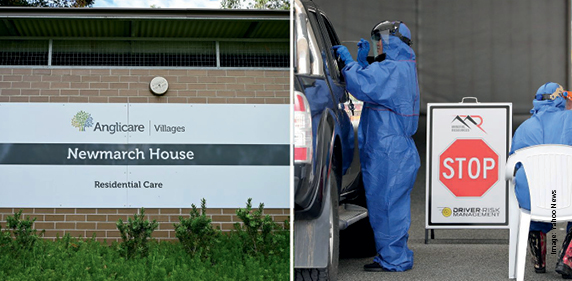
Elder law and e-witnessing
Richard McCullagh, who specialises in elder law and retirement village matters, says the most important thing to look out for in potential instances of elder law is “improvidence”.
“The decisions that make you say, ‘Oh really?’” he tells LSJ.
“Lawyers have a critical role to play when it comes to detecting financial elder abuse. If a client wants to do something, like transfer their home to their son for a dollar, it is critical that as lawyers we give advice like just leaving a home in an estate and not transferring it now, or ask questions about any other children, spouses or beneficiaries.
“Right now for legal practitioners, the most pressing thing we can do for people is to continue to do what we have always done when it comes to the witnessing of documents, perhaps even more so in this current time.
“Elder abuse is a constant concern, and perhaps that concern has been elevated by the pandemic.
Of particular concern to McCullagh during the COVID-19 pandemic are the changes to the witnessing of documents, allowing for electronic signatures or the use of video for signing purposes.
The Electronic Transactions Amendment (COVID-19 Witnessing of Documents) Regulation 2020 allows for the witnessing and attestation of documents through audio visual link until at least 26 September this year. It was passed by NSW Parliament with the intention of allowing legal business as usual to continue, even when signatories are working remotely or practising social distancing. The new regulations apply to – among other documents – wills and powers of attorney.
McCullagh uses the size of his suburban practice to still practise in-person signing where possible, by “the window method” – meeting with a glass door or window in between and using mobile phones on speaker to ensure he and the clients keep appropriate distancing.
While acknowledging the necessity of the regulation, he notes it does not assist solicitors with the critical role they play in making a judgment call about the mental capacity of an elderly or vulnerable client.
“What [the regulation] doesn’t do it is allow solicitors to effectively make a determination about the mental capacity of a client, and if there has been undue influence,” he says.
Browne is also concerned that the recent changes to the witnessing of documents – allowing for electronic witnessing to be used due to the physical restrictions of the COVID-19 pandemic – could adversely affect older and more vulnerable Australians.
“There is a lot of celebrating and statements that law is heading into the 21st century, but it does carry a lot of risks,” he says.
“If electronic witnessing is solving a problem where there is an emergency, and it cannot be dealt with any other way, then that is a good development, but it really just needs to be used in situations where it truly is urgent and there is no other viable solution.”
He says lawyers must take extra care to ensure, in situations where elderly people are having their signature witnessed by audio-visual means, that their face, body and hands are visible.
“Just because we feel it can now be used it does not mean that we should just ignore the formal requirements of the legislation,” he says.
Clarke says the pandemic has increased the sense of isolation many older Australians already experience.
“The people who most need it are often not high-tech users in the first place and they may feel distinctly uneasy with the notion of using video to do anything,” Clarke tells LSJ.
“The new process is not a panacea for making things easier. It remains a complex issue.”
He says many of the issues in elder law have been exacerbated by the pandemic, but it hasn’t “really created new issues”.
“It really has just compounded matters,” he says, “because in elder law, things were complex, and they have probably gotten even more complex.”

